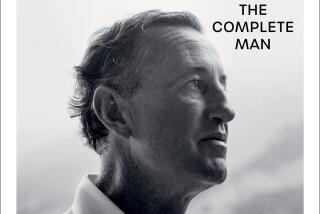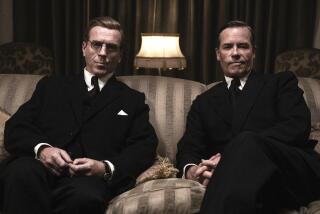NONFICTION - Feb. 26, 1995
- Share via
MY 5 CAMBRIDGE FRIENDS: Burgess, Maclean, Philby, Blunt, and Cairncross by Yuri Modin with Jean-Charles Deniau and Aguieszka Ziarek, translated by Anthony Roberts (Farrar, Straus & Giroux: $23; 282 pp.). After every clandestine meeting with the soon-to-be-infamous Guy Burgess, writes his handler Yuri Modin, the Soviet attache would “head for the nearest drinking establishment, where I slowly and very deliberately drank down a glass of beer.” Such was Burgess’ intellectual firepower and social charm: Modin felt “completely spent” by these London encounters, in awe of Burgess’ quick wit, tactical shrewdness and willingness to take risks. Indeed, in this account Modin shows the utmost respect for Burgess, Donald Maclean, Kim Philby, Anthony Blunt and John Cairncross, with whom he worked between 1944 and 1951--a respect that stands in sharp contrast to the utter contempt with which they are regarded in the West. Spy memoirs must be read with truckloads of salt, of course, but that said, this is a remarkably scrupulous volume; Modin less interested in aggrandizing his own role in the great post-war espionage drama than in fleshing out a fascinating bit of history. There’s much derring-do by the British double-agents, and a few narrow escapes, but what you’ll remember most about the book is the extraordinary laxity--at least at one time--of British security procedures, which apparently operated from the assumption that people with the right families and the right education simply wouldn’t betray national secrets. You can understand a diplomatic agency’s willingness to overlook a prospect’s college-era flirtation with communism: But what did MI5 make of Kim Philby’s father, who converted to Islam and passed confidential intelligence information to the Saudis? Of Philby’s marriage to a well-known activist in Austria’s Communist party? The signs seem everywhere, yet these five agents--all but Cairncross, Modin’s favorite spy, of upper-class backgrounds--managed to persuade their superiors that their young socialism was at bottom anti-fascism. That wasn’t true, as we would later learn, and perhaps the most touching aspect of “My 5 Cambridge Friends” is the idealism Modin sees in his spy ring, the members’ customary refusal to take pay for their services and shared belief that they acted in the interests of humanity. (Cairncross in fact saved perhaps thousands of Soviet lives in 1942-43, by passing to the KGB information on the armor cladding Germany’s Tiger tanks.) Modin, unlike most nonfiction chroniclers of the Cambridge spies, sees Burgess and his circle as men of flesh and blood, and it’s impossible to read his book without being moved on their behalf.
More to Read
Sign up for our Book Club newsletter
Get the latest news, events and more from the Los Angeles Times Book Club, and help us get L.A. reading and talking.
You may occasionally receive promotional content from the Los Angeles Times.










